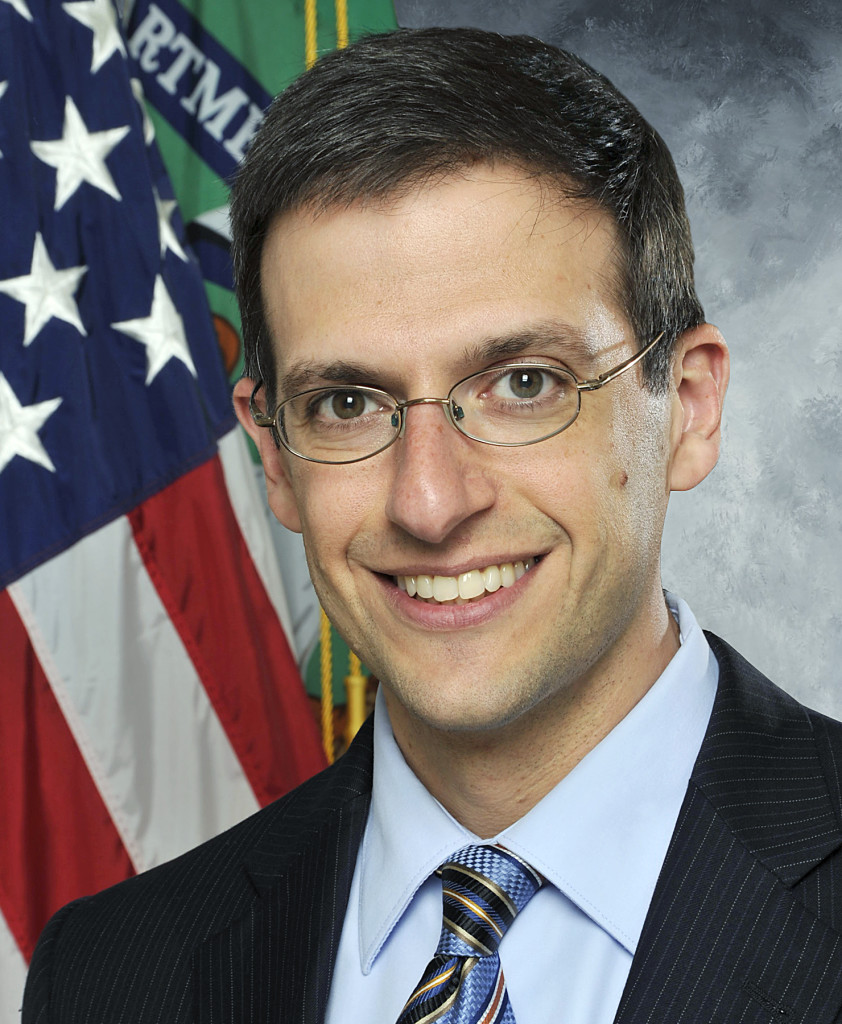February 19, 2016

The Islamic State is pulling in about $40 million a month from oil sales, but that is less than half its revenue, a senior US Treasury official has said.
In the most detailed public explanation yet of the Islamic State’s finances, Under Secretary of the Treasury Adam Szubin had a surprise, saying, “ISIL is selling a great deal of oil to the Assad regime.”
Speaking to an audience at Chatham House in London, Szubin said, “The two are trying to slaughter each other and they are still engaged in millions and millions of dollars of trade.”
He said the “far greater amount” of Islamic State oil ends up under Assad’s control, while some is consumed internally in Islamic State-controlled areas, some ends up in Kurdish regions and some in Turkey.
Iran has damned Turkey for not stopping the Islamic State oil. It has said nothing about the Syrian government buying oil from the group.
“Our sense is that ISIL is taking its profits basically at the wellhead,” Szubin said, meaning that tanker truck drivers were the owners of the oil when it was delivered. “So, while you do have ISIL oil ending up in a variety of different places, that’s not really the pressure we want when it comes to stemming the flow of funding. It really comes down to taking down their infrastructure,” Szubin said.
The United States has recently boosted its attacks on oilfields, storage sites and tanker trucks in an effort to crimp the group’s revenues. A Pentagon spokesman last week said the air strikes have reduced the group’s oil production by about 25 percent since last October, from 45,000 barrels a day to 34,000.
After Turkey downed a Russian fighter jet in November, Russian President Vladimir Putin said he had intelligence that large amounts of oil and petroleum products were moving across the border from Islamic State territories to Turkey. Iran has harped on that theme ever since, accusing Turkey of supporting the Islamic State by buying oil from it. Iran has ignored Szubin’s comments that its Syrian ally buys much more than Turkish buyers.
Szubin said, “There is no question that better security, closing the Turkish border to flows, is a key component right now and we are looking to the Turks to do more in that respect. It’s not just a financial issue. It is about foreign terrorist flows, it’s about weapons and it’s about financing. I think securing that border would pay major dividends in terms of intensifying the pressure and also reducing the threat.”
In an attempt to cut militants’ links to the global financial system, Szubin said the United States had worked with Iraq to close down dozens of bank branches in Islamic State-held territories. Szubin said militants had looted up to $1 billion from bank vaults in Syria and Iraq, but he said Islamic State’s oil trade is the main target.
Szubin said the Islamic State gets most of its revenues now from taxes and fees it imposes on people and businesses within the area it controls.
FBI trolls for missing Levinson in Farsi
The FBI has launched a Facebook page in Farsi to solicit tips on the whereabouts of Robert Levinson, the former FBI agent who went missing in Iran nine years ago.
The new site, which was started after the prisoner exchange with Iran last month, is part of an effort to appeal directly to the Iranian public for information about Levinson’s disappearance. Additional pages are planned in Arabic and Urdu.
Levinson, who would be 67 if he is still alive, disappeared in March 2007. A $5 million reward for information leading to his whereabouts remains in effect.
Though Levinson was last seen in the custody of police officers on Kish Island, the Iranian government has never acknowledged arresting him and has said it doesn’t know where he is.
In late 2010, Levinson’s family received a video of him that proved he was still alive then. In the video, Levinson, who had lost considerable weight, pleaded for help to return home. In April 2011, the family received still photos showing Levinson, with unkempt hair, dressed in an orange jumpsuit.
One of Levinson’s children, Daniel Levinson, said in an interview with the AP last week that the family was “devastated” that Levinson was not part of the prisoner swap and was upset that it had no advance notice the exchange would take place.
He said it should be “unacceptable not just to us but to the American people to leave someone behind like that,” noting that his father had missed many family events like weddings and births of grandchildren.
“We’re not going to go away. We’re not going to give up,” Levinson said. “We’re going to continue pressing.”